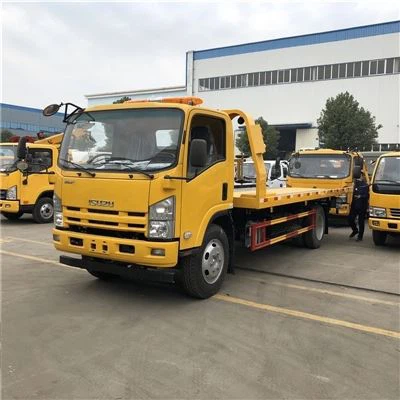Vactor trucks are essential pieces of equipment for municipalities and contractors alike, used primarily for vacuuming and cleaning a variety of materials. Whether you are in the market for a vactor truck to handle sewage, stormwater, or utility cleaning, understanding how to choose the right one is crucial. This comprehensive guide will cover the various aspects of purchasing a vactor, what to look for, practical examples, and tips that will help you make an informed decision. Let’s dive in!
What is a Vactor Truck?
A vactor truck is a specialized vehicle equipped with a vacuum system designed to suck up debris and liquids from various surfaces. It is commonly used in sewer maintenance, storm drain cleaning, and excavation projects. The truck’s high-powered vacuum can handle solids, liquids, and sludges, making it versatile for many applications.
Types of Vactor Trucks
Vactor trucks come in various configurations, each suited to particular tasks. Below are some common types:
- Combination Vactor Trucks: These combine vacuum and jetting capabilities, ideal for cleaning sewer lines.
- Vacuum Excavators: Utilize suction to safely expose underground utilities without damaging them.
- Hydro Excavators: Use high-pressure water jets to soften the ground before vacuuming for minimally invasive excavation.
Why Invest in a Vactor Truck?
Investing in a vactor truck can yield significant benefits for businesses related to waste management, construction, and municipality services. Here are some key reasons:
Efficiency
Vactor trucks are designed to perform tasks quickly and efficiently, saving valuable labor time.
Versatility
These trucks can handle a variety of materials—liquids, solids, sludges—making them beneficial for different applications.
Cost-Effectiveness
While the initial investment might be high, the long-term savings on labor and operational efficiency can be substantial.
Buying a Vactor Truck: Key Considerations
1. Determine Your Needs
Identifying the primary use for your vactor truck is crucial. Will you need it for sewer cleaning, hydro excavation, or storm drain maintenance? Understanding your specific requirements helps narrow your options.
2. Choose the Right Size
Vactor trucks come in various sizes, and it’s critical to choose one that suits your operational needs while also considering the terrain you’ll be working on. Smaller trucks are more maneuverable, while larger ones have more capacity.
3. Assess Capacity and Power
Look for the vacuum capacity (measured in gallons) and the blower power. More powerful units can handle larger jobs and materials more efficiently.
New vs. Used Vactor Trucks
Pros and Cons of New Vactor Trucks

Pros
- Latest technology and features
- Full warranty coverage
- Customizable options
Cons
- Higher cost
- Depreciation begins immediately
Pros and Cons of Used Vactor Trucks

Pros
- Lower purchase price
- Slower depreciation
Cons

- Possible maintenance issues
- No warranty
- Limited to existing features
How to Evaluate a Vactor Truck for Sale
Physical Inspection
Conduct a thorough inspection of the truck including the paint, bodywork, and mechanical components. Check for signs of rust, leaks, or any damage.
Test the Equipment
If possible, arrange for a test run of the vactor truck. This will help you assess its performance and operational readiness.
Check Service History
For used trucks, reviewing maintenance records can provide insights into the equipment’s reliability and longevity.
Financing Options for Vactor Trucks
When considering the purchase of a vactor truck, look into different financing options available. Below are a few common methods:
- Direct Purchase: Pay the full amount upfront.
- Loans: Seek loans from banks or financial institutions.
- Leasing: Consider leasing options which may require lower initial capital.
Where to Find Vactor Trucks for Sale
Online Marketplaces
Websites like eBay, Craigslist, and specialized equipment auction sites are great resources for finding vactor trucks.
Dealerships and Distributors
Contact local dealerships that specialize in construction and municipal equipment. They may have both new and used options available.
Trade Shows and Expos
Attend industry trade shows where manufacturers showcase their latest models and often provide on-site sales opportunities.
Maintenance Tips for Vactor Trucks
Proper maintenance is key to ensure your vactor truck operates efficiently over its lifespan. Here are some essential tips:
- Regularly check fluid levels and change them according to the manufacturer’s recommendations.
- Inspect the vacuum system and clean filters as needed.
- Schedule routine inspections with a qualified technician.
Frequently Asked Questions
1. How much does a new vactor truck cost?
The cost can range from $200,000 to over $500,000 depending on size and features.
2. What should I look for when buying a used vactor truck?
Check the service history, condition of the body and vacuum system, and overall performance.
3. How do I finance a vactor truck?
You can explore loans, leasing options, or direct purchases depending on your financial situation.
4. Can I rent a vactor truck instead of buying?
Yes! Many companies offer rental options for vactor trucks for short-term projects.
5. What is the average lifespan of a vactor truck?
With proper maintenance, a vactor truck can last between 10 to 15 years.
6. Are there any government grants available for buying vactor trucks?
Some local governments provide grants or funding for municipalities to purchase vactor trucks as part of infrastructure improvement initiatives.